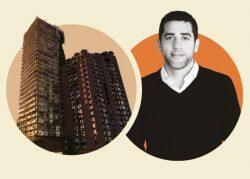Good news for Yimbys: New York City added 13,500 residential units to its housing stock last year.
The bad news: The city also lost 10,800 units, for a net gain of just 2,666, according to The Real Deal’s analysis of the city’s Primary Land Use Tax Lot Output (PLUTO) database.
A Department of City Planning spokesperson, however, said another city database is a “much better resource” and shows the city gained 14,300 units during the first half of 2022 alone. That comes from Department of Buildings filings for construction, demolition and alterations, the three main contributors to changes in the number of city dwellings.
There are a number of reasons why homes may be taken off the market, including demolitions to make way for new projects. In some cases, landlords may combine multiple rent-stabilized units into one to reset the rent.
TRD broke down the numbers from PLUTO (the database, not the planet) to find out which parts of the city gained the most units last year. Some 81 neighborhoods saw a net gain in 2022, while another 80 ended the year with fewer units than they started with.
The biggest gainer was Fort Greene in Brooklyn, both in terms of raw numbers and as a percentage of existing housing stock. Home to numerous residential projects, particularly around Pacific Park and along the border with Downtown Brooklyn, the neighborhood saw a net gain of 1,061 units last year — or 8.45 percent of its existing stock.
Jamaica, Queens, took second place with a net gain of 1,047 new homes or 6.73 percent of its existing stock.
Third was Brooklyn’s Coney Island, with a gain of 860 units — a 4.21 percent boost — followed by Prospect Heights, Brooklyn, which added 787 units, or 6.91 percent of its existing stock.
Elmhurst, Queens, rounded out the top five with a net 653 new homes in 2022, but due to the vast neighborhood’s already-substantial housing stock, that amounted to only a 1.51 percent increase.
South Harlem was the only Manhattan neighborhood to make the top 10, adding 313 units for a gain of 1.46 percent. The Bronx and Staten Island were not represented among the top 20.
Ranked by proportional increases in housing stock, Fort Greene still topped the list at 8.45 percent, but second place went to the primarily commercial area surrounding Grand Central Terminal in Manhattan, where a net gain of only 212 units was good enough for a 7.7 percent jump in housing stock. Likewise, Brooklyn’s Dumbo added just 224 units last year, but that amounted to a 7.59 percent boost from its low base.
Among the five boroughs, Brooklyn had the biggest net gain in residential units last year, ending 2022 with 3,246 more homes than it started with. The Bronx and Staten Island saw more modest gains, while Manhattan and Queens both recorded net losses. Manhattan alone lost nearly 2,000 apartments last year.
This article has been updated with a comment from the Department of City Planning.
This is one of the hundreds of data sets available on TRD Pro — the one-stop real estate terminal for all the data and market information you need.
For inquiries about how to obtain the underlying data set referenced in this story, email research@therealdeal.com
Read more

